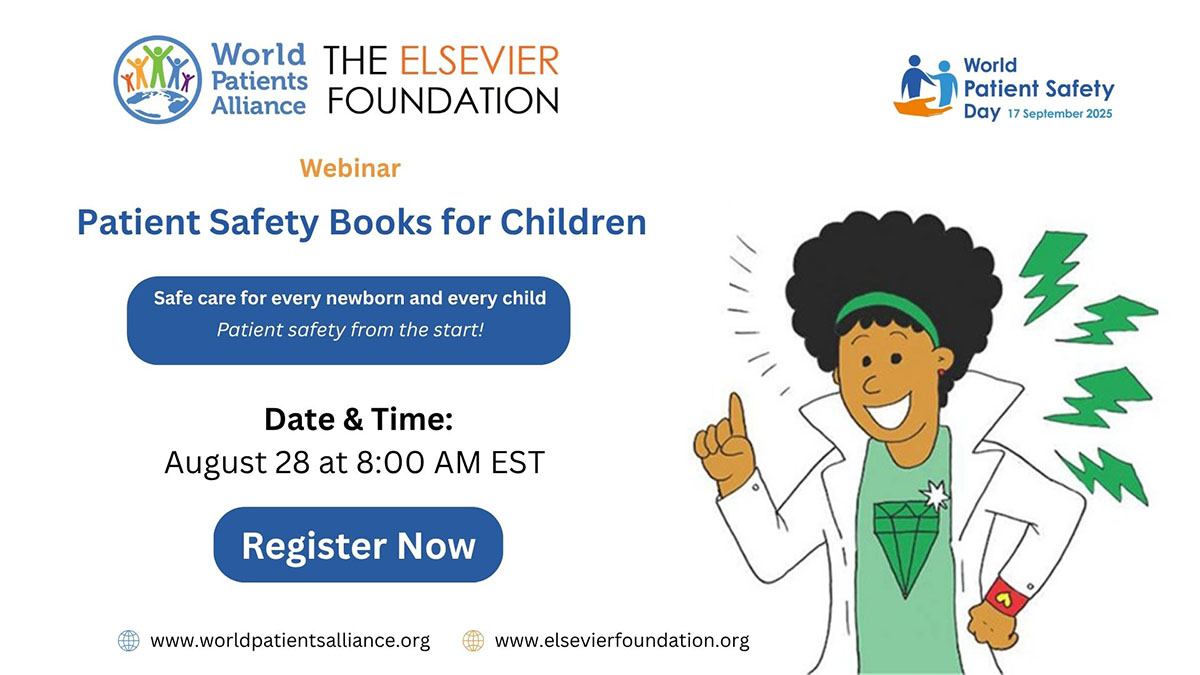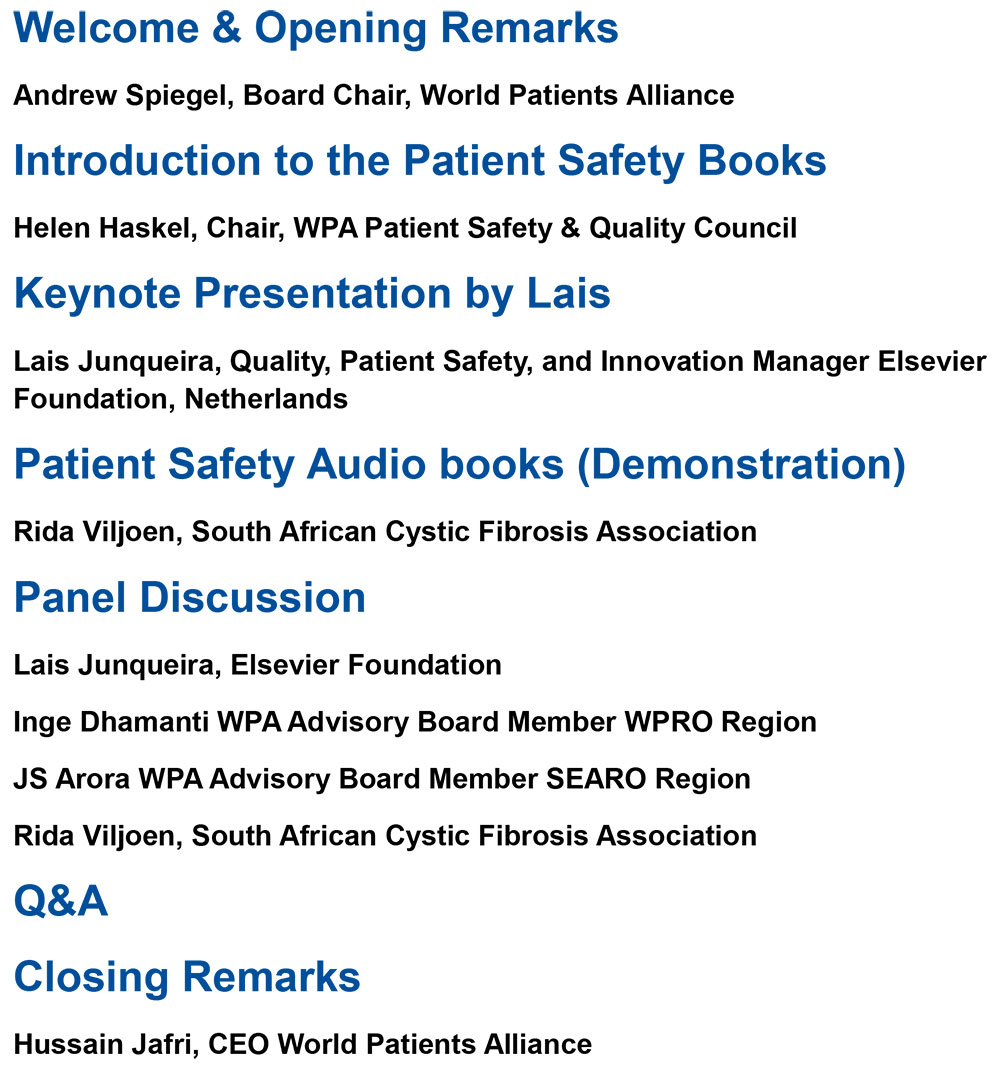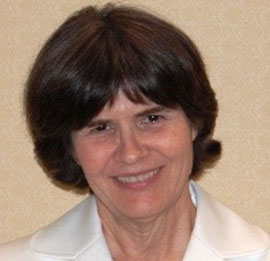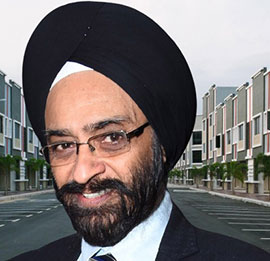
Webinar: Patient Safety Books for Children
Webinar Report: Patient Safety Books for Children
Date: August 28, 2025 • Organized by: World Patients Alliance (WPA) in collaboration with the Elsevier Foundation
Overview
WPA hosted a focused webinar to introduce the Patient Safety Books for Children a growing series that helps children understand core safety topics with simple stories, diverse characters, and practical tips. The session featured a walkthrough of the books, a live demo of the new audio versions, and a panel Q&A on implementation in schools, clinics, and communities. AI-powered interpretation was available in 50+ languages to ensure accessibility.
Objectives
• Present the children’s book series and its learning outcomes.
• Demonstrate the audio versions and discuss use cases where literacy is a barrier.
• Share practical guidance for adoption by patient groups, schools, and health facilities.
Speakers and Roles

Highlights from Presentations
Why books for children?
Helen Haskell outlined the rationale: early, age-appropriate education helps build lifelong safety habits. Patient safety should start where children learn home, schools, and clinics.
Inside the series
Laís Junqueira introduced the Doctor Safety universe stories that show everyday dilemmas, a turning point through knowledge, and practical actions (e.g., hand hygiene, visiting the doctor, antibiotics, injections). The series embraces representation across regions and cultures and is guided by an editorial board including Helen Haskell, Hussain Jafri, Regina Kamoga, Cristiane Tavares, Tiago Dalcin, Laís Junqueira, and Pedro de Luna, with support from the Elsevier Foundation team.
Key design principles:
• Simple narratives tied to real behaviours (e.g., how and why to wash hands).
• Positive role models (Doctor Safety and the “Safety League”).
• Materials suitable for classrooms, waiting rooms, and community sessions.
Audio books: improving access
Rida Viljoen demonstrated the audio versions and explained how they support families with limited time or literacy. Audio helps children follow stories, repeat key steps, and learn together with caregivers. Use cases include clinic queues, school health classes, and at-home learning.
Panel Discussion, what it takes to scale
Moderated by Helen Haskell, the panel covered:
Adoption pathways: integrate books into school health lessons; use in paediatric clinics and vaccination days; partner with patient groups for community sessions.
Equity and reach: pair e-books with audio and printable flipbooks; plan for translations and local illustrations.
Measurement: track engagement (downloads, class sessions held), basic knowledge checks with children, and feedback from teachers and parents.
Key Takeaways
Start Early: Teaching safety concepts in childhood makes safer behaviours stick.
Keep it Practical: Show “what to do” (e.g., steps for handwashing) in story form.
Design for Inclusion: Use audio, simple language, and culturally relevant characters.
Enable Easy Rollout: Offer ready-to-use packs for schools and clinics, plus guidance for facilitators.
Next Steps for Partners
• Use the e-books and audio versions in your programs and share feedback.
• Translate/adapt with local partners while preserving core safety messages.
• Report basic usage metrics to WPA to inform future improvements.
Acknowledgments
WPA thanks the speakers and panellists, the Elsevier Foundation for collaboration on the series, and the global community.
Speakers








